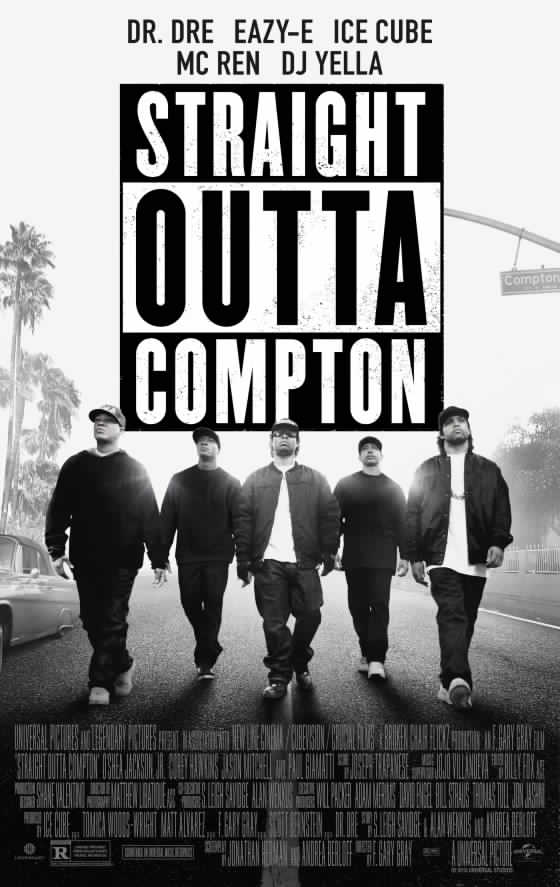“Straight Outta Compton” Traces the Emotional Rise and Fall of a Hip-Hop Super-Group
Given its subject matter, one might expect F. Gary Gray’s Straight Outta Compton to be violent and gratuitous. However, it’s actually a heartfelt and emotional journey. Even viewers who are not followers of hip-hop music will still probably enjoy Straight Outta Compton, as it captures the passion and emotion of this compelling group.
Straight Outta Compton retells the story of the now critically-acclaimed and incredibly influential late ‘80s hip hop group, N.W.A. Formed by icons Ice Cube and Dr. Dre, N.W.A. strived to provide a voice from the streets of inner city Los Angeles. In doing so, the group found commercial success.
In fact, their level of fame was partly what caused their quick downfall, according to the film. Some of their songs, such as “F*** Tha Police,” were so controversial that they led to threatening letters from the FBI, concert restrictions by police, and total chaos at concerts.
Depicting these moments is not where Straight Outta Compton excels, however. It largely focuses on the now-deceased member, Eazy-E. Even though it’s shown that his decisions caused conflict within the group, most viewers will become so invested in his story that it will become difficult not to sympathize with him in his lowest moments. The film’s depiction of his last moments is surprising, as it starts to become increasingly tragic. In fact, this segment is compelling enough that it caused many in the theater to start tearing up.
However, that’s not to say that Straight Outta Compton is without its flaws. It’s been noted that a great deal of material has been cut from the film. Gray has justified this decision by calling the cuts insignificant, and while this can be argued, it becomes difficult to justify when it’s noted what content was cut. For example, scenes in which Dr. Dre beats a woman nearly to death and faces trial were cut out in favor of having several insignificant comic relief moments. For example, there are two pointless scenes that reference Gray and Ice Cube’s famous stoner comedy, Friday. A feud Dre had with Eazy-E was also arguably glossed over, making it seem like Dre mostly treated Eazy-E with kindness. For this reason, it’s probably safe to conclude that it’s not a coincidence that nearly all the scenes cut depict Dre in a negative manner.
Despite that fact, there’s not much else to complain about. In terms of its acting, most of the performances are thoroughly believable and commendable. However, some might take issue with the depictions of Snoop Dogg and Suge Knight. Keith Stanfield, who depicts Snoop, doesn’t bear much likeness to the real thing and fails to evoke the aesthetic that’s associated with him. Although he is supposed to be a kingpin in the criminal underground, R. Marcos Taylor, who depicts Suge Knight, fails to be intimidating.
The film’s cinematography is also commendable. It’s often stylish without being intrusive and manages to effectively depict everything in a captivating manner. Unlike most films today, it also refrains from using too many visual effects at once and is shot with proper visuals.
Altogether, Straight Outta Compton is a movie that I imagine most viewers would enjoy. Given its modern context, it’s also very admirable from a critical standpoint, as it refrains from taking itself too seriously at most moments and often gets straight to the point. It also has a sense of confidence in its presentation that evokes the same spirit of older, simpler films. Largely for that reason, Straight Outta Compton has earned its place among my favorite recently-released films.










